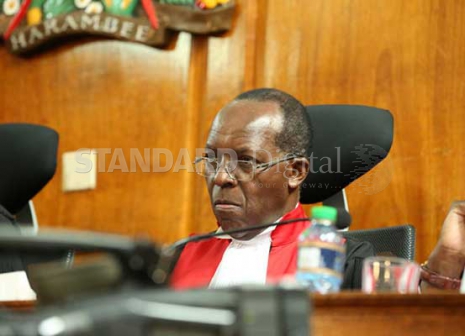×
The Standard e-Paper
Smart Minds Choose Us

Justice Jackton Ojwang said he disagreed with the decision to annul the victory of Uhuru Kenyatta because it was political and not based on law.
The former University of Nairobi law lecturer dismissed the ruling by his four colleagues, saying it failed to consider the Bill of Rights.